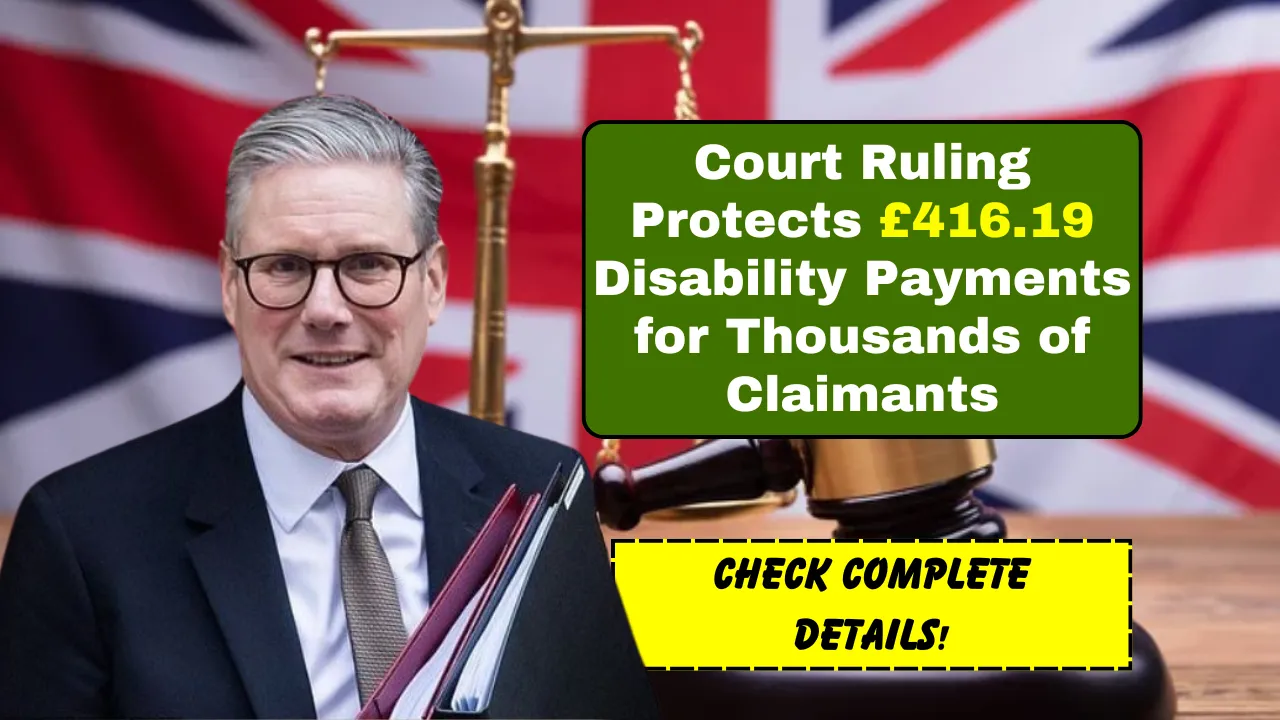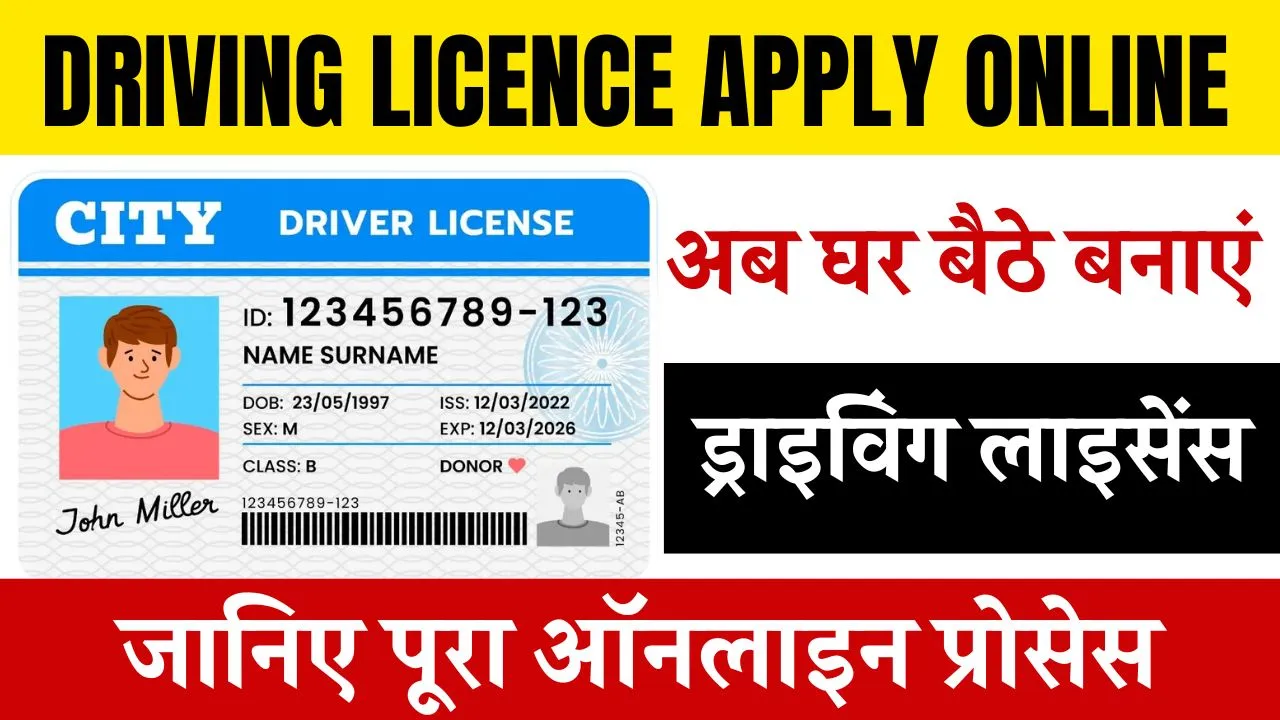£416.19 Disability Payments: A recent High Court ruling has brought much-needed relief to thousands of disabled individuals in the UK who rely on essential benefit payments. The decision ensures the continuation of the £416.19 disability payments for people receiving Universal Credit (UC) or Employment and Support Allowance (ESA). This legal victory blocks proposed cuts from the Department for Work and Pensions (DWP), which would have affected some of the country’s most vulnerable residents.
This article breaks down what the ruling means, who qualifies for the payment, how to check eligibility, and the broader implications for the future of disability benefits in the UK.
£416.19 Disability Payments: What You Need to Know
The £416.19 disability payments are awarded to individuals placed in the Limited Capability for Work and Work-Related Activity (LCWRA) group under Universal Credit or the Support Group under ESA. These additional payments are designed to help those whose health conditions or disabilities severely limit their ability to work. The recent court ruling has now secured the continuation of these payments, ensuring that claimants won’t face disruptions or reductions in their financial support.
Overview Table: £416.19 Disability Payment Details
| Key Topic | Details |
| Monthly Payment Amount | £416.19 |
| Who Qualifies | LCWRA group (Universal Credit) or Support Group (ESA) |
| Ruling Date | March 2025 |
| Reason for Ruling | High Court found DWP’s proposed changes unlawful due to flawed consultation |
| How to Check Eligibility | Through UC online portal or ESA confirmation letter |
| Support Use | Covers food, rent, energy, transport, and healthcare |
| Backdated Payment Eligibility | Yes, if benefits were reduced in error |
High Court Decision Safeguards Payments for Disabled People
The High Court ruling in March 2025 has been praised by disability rights groups for protecting critical support for disabled claimants. The court concluded that the DWP’s attempt to alter disability benefit criteria lacked proper consultation and transparency. As a result, individuals placed in the LCWRA or Support Group categories will continue to receive the £416.19 monthly payment without interruption.
This decision not only upholds financial stability for thousands but also sets a legal precedent ensuring that any future changes to benefits must follow a clear and fair consultation process.
The Importance of the High Court Ruling
This ruling was the result of a challenge led by disability advocates, including the Public Law Project. The court agreed that the consultation on proposed benefit cuts was misleading and failed to explain the real impact on claimants.
For many, the £416.19 payment is not just a number—it is essential for managing daily living expenses such as food, housing, and healthcare. The court’s intervention ensures this vital support remains available, preventing financial hardship for over 400,000 disabled people.
What is the Work Capability Assessment (WCA)?
The Work Capability Assessment (WCA) is used to evaluate a claimant’s ability to work due to health issues or disabilities. Based on the assessment, claimants are placed into one of three categories:
- Fit for work – No extra support provided.
- Limited Capability for Work (LCW) – Must prepare for work but do not currently need to work.
- Limited Capability for Work and Work-Related Activity (LCWRA) – Exempt from work and preparation requirements due to severe limitations.
Only those in the LCWRA category under Universal Credit or the Support Group under ESA qualify for the additional £416.19 monthly payment.
Who Qualifies for the £416.19 Monthly Payment?
To receive the £416.19 payment, individuals must meet the following criteria:
- Be a UK resident receiving Universal Credit or ESA.
- Have undergone a Work Capability Assessment and been placed in the LCWRA group or Support Group.
- Have a health condition that significantly affects their ability to work or complete work-related tasks.
- Have income and savings within the DWP’s eligibility thresholds.
This payment supplements standard Universal Credit or ESA entitlements and is provided automatically once eligibility is confirmed.
How to Verify Your Eligibility
To check if you are receiving the LCWRA component:
- Log in to your Universal Credit account at gov.uk.
- Go to your award statement, where “LCWRA” should be listed if applicable.
- ESA claimants should check their benefit letters for confirmation of Support Group placement.
If you’re unsure, you can contact the DWP ESA helpline at 0800 169 0310. Support services like Citizens Advice or Disability Rights UK can also assist with understanding your benefit status and navigating any appeals.
What Were the Proposed Changes?
The DWP had suggested a series of changes that would have significantly narrowed eligibility for the LCWRA payment. These included:
- Removing LCWRA status for individuals with mobility limitations.
- Encouraging remote work for those previously exempt.
- Reducing the number of claimants eligible for the £416.19 monthly payment.
However, the High Court found these proposals lacked transparency. Claimants were not properly informed of the full financial impact, and many were denied the chance to respond effectively. The ruling has forced the DWP to pause and reconsider these reforms.
The Impact on Disabled Claimants
If the changes had gone ahead, nearly 424,000 disabled individuals would have faced a reduction or loss of their LCWRA or Support Group payment. The decision preserves an estimated £200 million annually in support for these claimants.
This financial aid is often used to cover vital needs like rent, food, medication, and heating. Removing it would have placed thousands at risk of poverty. Thanks to the ruling, claimants can continue to depend on this income without fear of sudden changes.
Claiming Backdated Payments
If you believe your benefits were wrongfully reduced or denied, you may be eligible for backdated payments. Here’s how to begin:
- Gather documentation – Include letters from the DWP, medical evidence, and WCA reports.
- Submit a Mandatory Reconsideration – This is the first step in the appeals process and must be submitted within one month of the decision letter.
- Seek expert support – Charities like Scope, Turn2us, and Citizens Advice can help you file appeals.
If your appeal is approved, you could receive several months—or even years—of missed payments, depending on your case.
The Future of Disability Benefits in the UK
Although the current decision safeguards the £416.19 disability payments, future reforms are likely. The court’s ruling sends a strong message: benefit consultations must be fair, clear, and inclusive.
Moving forward, policy changes may require:
- Impact assessments to evaluate financial effects on claimants.
- Transparent public consultations with clear explanations.
- Involvement from disability rights organizations in shaping reforms.
This decision is not only a legal win—it also sets a foundation for more respectful and thoughtful policymaking around disability support.
Final Thought
The High Court’s ruling to protect the £416.19 disability payments marks a crucial victory for thousands of vulnerable claimants across the UK. It reinforces the right to fair treatment, transparency, and financial support for those who need it most.
If you receive Universal Credit or ESA and believe you may qualify for this payment, now is the time to review your status, seek guidance, and ensure you’re getting the support you’re entitled to. Staying informed and connected to advocacy resources can help you navigate future changes confidently.

















